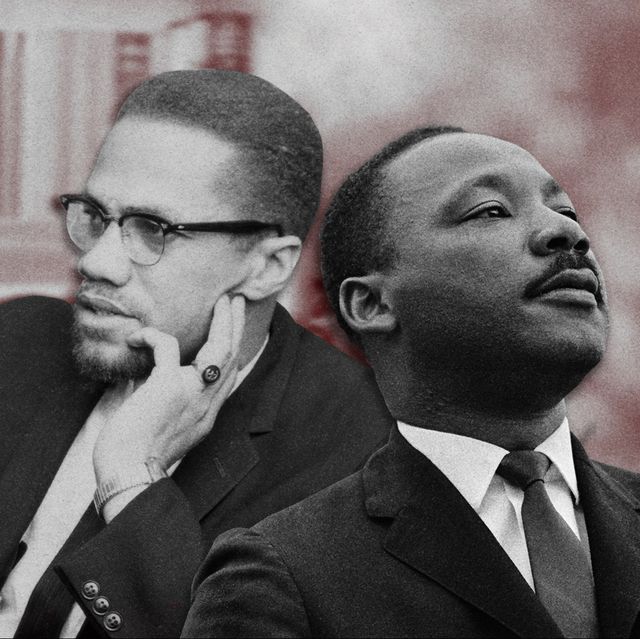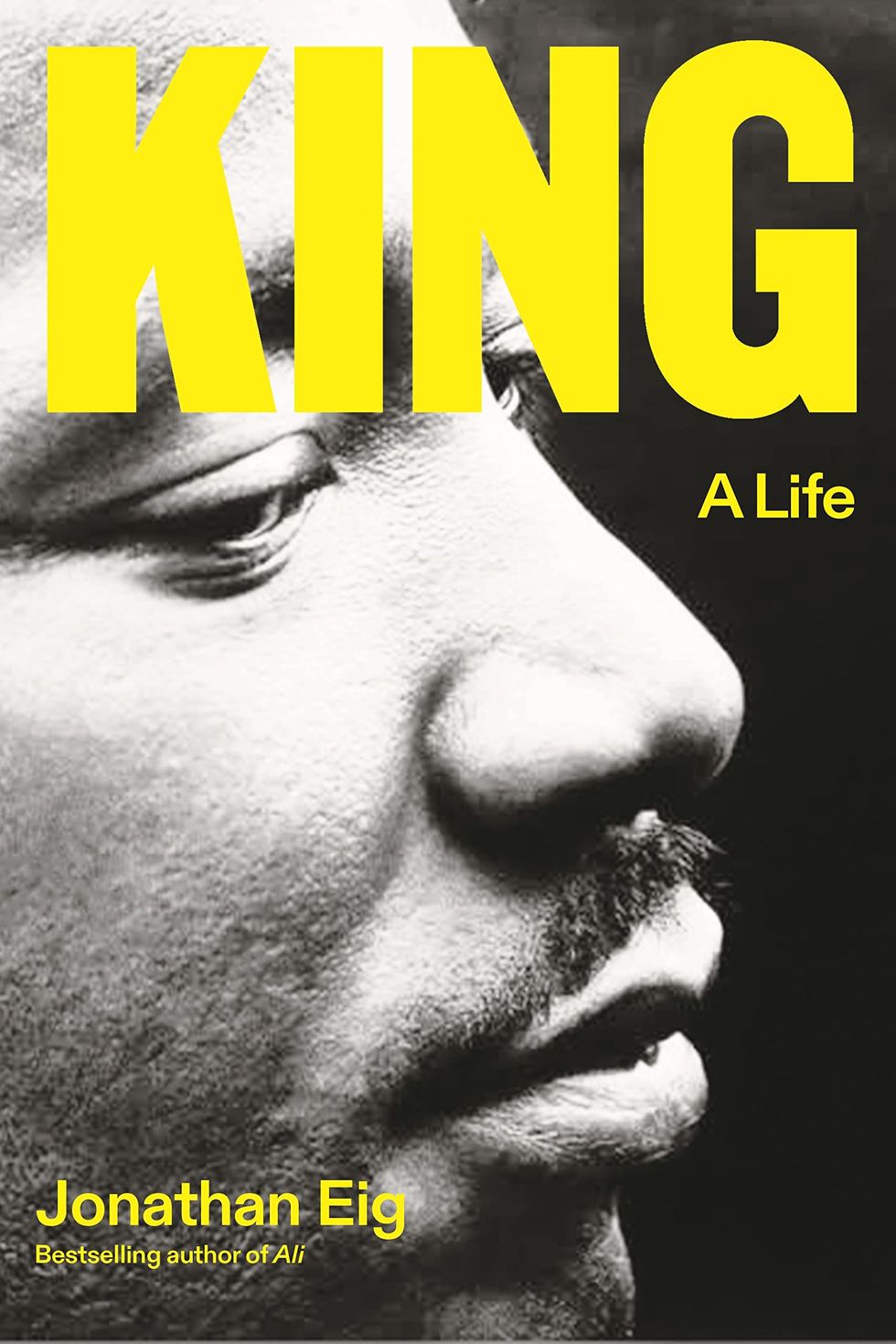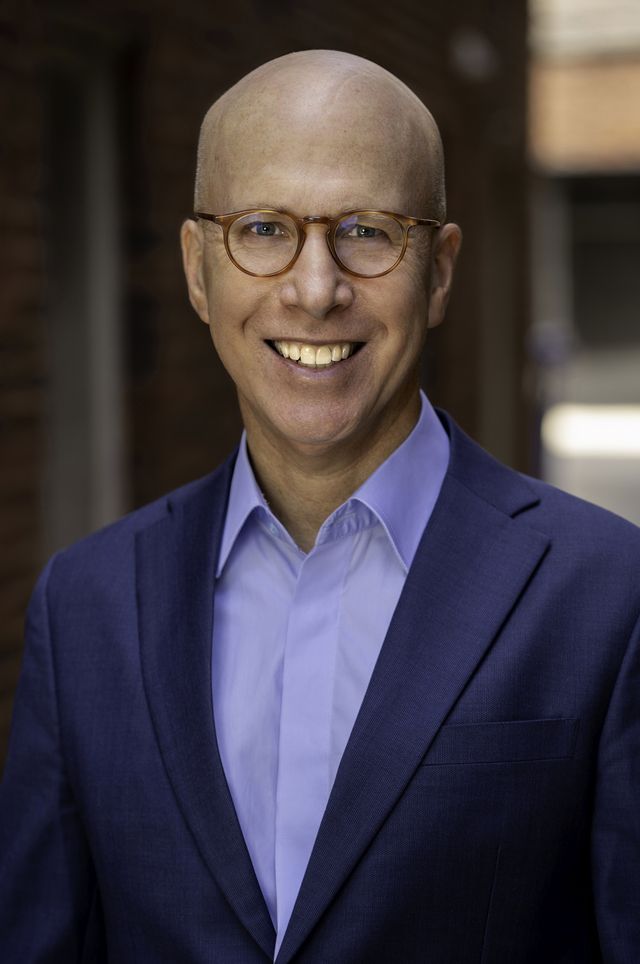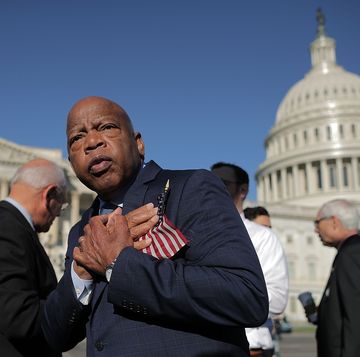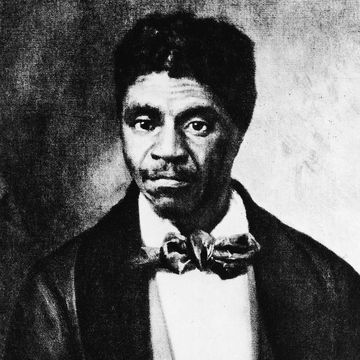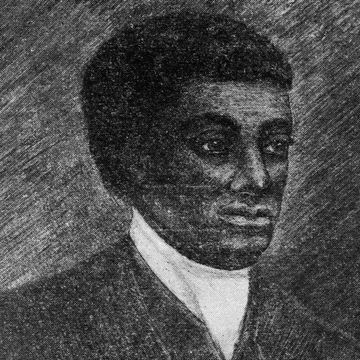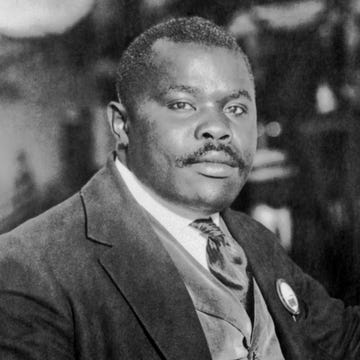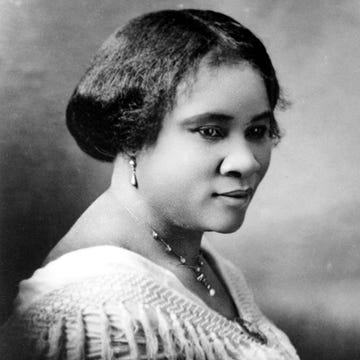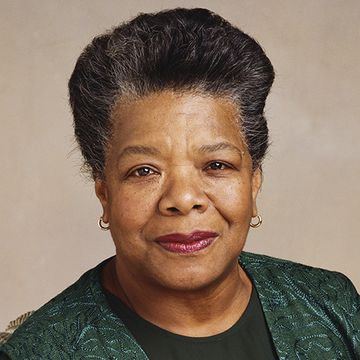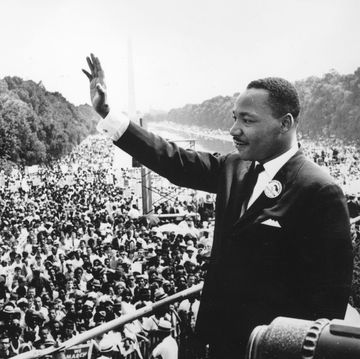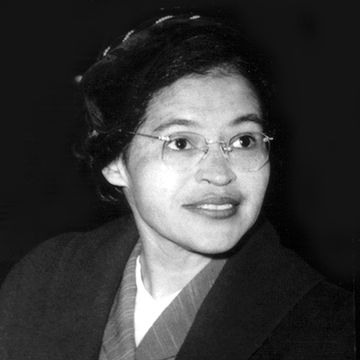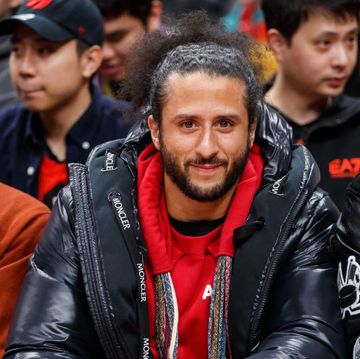In 1965, Playboy magazine published an interview with Martin Luther King Jr. in which the civil rights icon shared harsh words about Malcolm X, reportedly saying he “has done himself and our people a great disservice.” That fiery quote established the conventional wisdom that the two famed activists were rivals, a perception that has been taught and passed down for the last six decades.
But it turns out King never said it. Jonathan Eig, the author of the Pulitzer Prize–winning biography King: A Life, discovered in his research that Alex Haley, the Roots author who conducted that famous Playboy interview, had misquoted King. In fact, King said while he disagreed with some of Malcolm’s methods, he was open-minded about the differences in their views.
King: A Life, the first major biography of the civil rights activist in 40 years, is based on hundreds of interviews and thousands of newly-discovered documents. Released in May 2023, it is the latest biography by Jonathan Eig, the author of New York Times bestsellers Ali: A Life, Opening Day: The Story of Jackie Robinson’s First Season, and Luckiest Man: The Life and Death of Lou Gehrig.
In a 2023 interview with Biography.com, Eig shared how he discovered this misquotation, the historic reverberations it had, and how this new information should change our views of both Martin Luther King Jr. and Malcolm X. This interview has been edited for length and clarity.
What was Martin Luther King Jr. widely believed to have said about Malcolm X before your recent discovery?
In a Playboy magazine interview, which was the longest interview Dr. King ever conducted, he was asked what he thought about Malcolm X, and the reply as printed in Playboy was “In his litany of articulating the despair of the Negro without offering any positive, creative alternative, I feel that Malcolm has done himself and our people a great disservice. Fiery, demagogic oratory in the black ghettos, urging Negroes to arm themselves and prepare to engage in violence, as he has done, can reap nothing but grief.” That was the quote as published and said to be spoken by Martin Luther King Jr. about Malcolm X, but that is not actually what Dr. King said.
So according to your research, what did King actually say about Malcolm X?
He was asked what he thought about the Nation of Islam, and in that question, he said he thought the fiery demagogic oratory in the black ghettos was doing harm, but he didn’t say that about Malcolm. When asked about Malcolm, he said he disagreed with many of his views, particularly in the use of violence, but he said ‘I don’t want to make it sound like my way is the only way.’ That’s a big, big difference.
I discovered this going through the original transcript for Alex Haley’s interview. I found it in his papers at Duke University in the Rubenstein Library, where many of Haley’s papers are kept. When I read the original transcript of what Dr. King said in the actual interview, I was shocked at how different it was from when it was actually published.
What are the historic reverberations of this misquotation, which has been repeated so widely and so often over the decades?
It’s been repeated, it’s been taught in classrooms, it’s in textbooks, and it suggests King and Malcolm X were adversaries and that King viewed Malcolm X skeptically, when really King was advocating open-mindedness. I think it’s important because much of the journalism world and others at the time were trying to create friction between Black leaders, and history has reinforced that in some way, because they have been portrayed as polar opposites when, in fact, they have had much more common ground than the media suggested.
What would be a more accurate way to describe King’s opinion of Malcolm X?
I think it’s safe to say that Martin Luther King Jr. deplored all violence and did not approve of Malcolm X’s threats of violence in accomplishing his goals, but at the same time, they shared a great interest in black dignity, black equality, in forcing white America to give up some of the power that it was hoarding. So those are the things they shared. And the most important part of this revelation, this new information, may be the fact that Dr. King was humble when asked about Malcolm X and said I don’t think I have all the answers, as if to say he felt that he could learn from Malcolm X.
For people who have heard that famous misquote over the years, how should this new revelation revise our view of both King and Malcolm X?
For those of us who are still thinking of Malcolm and King as rivals, as opposites, we need to rethink that. And plenty of scholars have explored this in recent years, most recently Peniel E. Joseph in his book The Sword and the Shield, but plenty of people even before that. James Baldwin wrote that before his death, King and Malcolm had more in common than they did apart. And I think that that’s what we need to be focused upon, looking at the history and that two of our greatest activists were fighting the same battle, not fighting each other.
Alex Haley is widely renowned for his works like Roots and The Autobiography of Malcolm X, but he has been accused of plagiarism, copyright infringement, and historical inaccuracies in the past. Does this misquote change your view of his legacy or how you feel others should view his work?
I’m not really concerned with Haley’s legacy, but I am concerned with his work and whether we can trust it. As someone who is writing history and relying on primary source material, you’d like to think a published interview is primary source material, but you have to question everything, and when it comes to Alex Haley you have to question everything with heightened scrutiny. I think the next step for scholars is to look at The Autobiography of Malcolm X [for which Haley collaborated with Malcolm], which there has already been some indication it is flawed, but I think it requires further scrutiny.
To me, the moral of the story is when you found a good interview that somebody did, it’s worth going back and checking the notes and the tapes. It’s something I’ve learned to do as a biographer in recent years. Any time someone gives a really good interview, I want to see what they left out and, in this case, what they changed.
What were some of the other biggest surprises about King that you discovered while working on this book?
There were a lot of surprises. I discovered that his plagiarism began in high school, for one thing: He entered and came in third place in a public speaking contest with a plagiarized speech. I was able to get ahold of recordings Coretta made just after her husband’s assassination, and they talked about their early years dating right up to the assassination. There were some really good details there, and just hearing her voice describe these things was very powerful. I discovered an unpublished biography of Martin Luther King Sr. There has been lots of archival material that was just recently discovered, not to mention FBI documents.
Colin McEvoy joined the Biography.com staff in 2023, and before that had spent 16 years as a journalist, writer, and communications professional. He is the author of two true crime books: Love Me or Else and Fatal Jealousy. He is also an avid film buff, reader, and lover of great stories.
